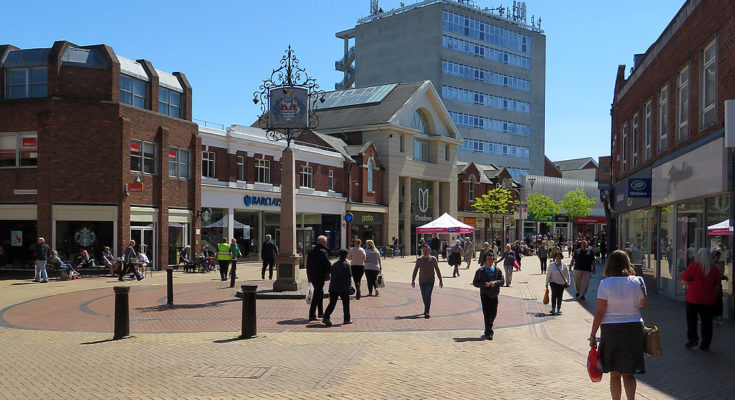Even before coronavirus forced all non-essential shops to close, our high streets were in dire straits. The Internet had already hit High Street footfall hard before Covid 19 came along, and now we’re in a perfect storm. The UK is entering recession, with the largest decline in the economy seen in decades – the first half of 2020 saw greater declines in business that the fallout of the 2008 credit crunch crisis.
As shopping habits in the UK continue to evolve, the high street has been particularly hard hit, as 82% of us now shop on-line, up from just 53% 10 years ago. This massive increase is bad news for high street shops, as companies develop and open less and less to give way to an online shop.
On top of this, the UK is the country with the biggest proportion of ecommerce sales – in December it was estimated that 21% of all retail was performed online. However, that does means that 79% if sales is still from physical shops.
Closures
This has unfortunately led to the closure of some of the UK’s favourite shops like Mothercare, Debenhams, House of Faser, Patisserie Valerie and Marks & Spencer. One of the UK’s oldest department store chains, Beales, has become one of the latest victims of the changing face of the high street, and this trend looks likely to continue to claim less performing high street retailers as only the most profitable will be able to keep operating.
Reasons
Retail analyst James Child had several reasons explaining what is happening: “In the retail sector, online spend is almost breaching 20%, with £1-in-every-£5 spent coming through internet sales, which has effected the true value of physical retail stores.”
“Extortionate rents for premises and the business rates that straddle them have placed additional financial pressures on those who are already under serious strain.”
“Consumers themselves are becoming more conscious spend-wise, with the economic ramifications of Brexit continuing to cause a crisis of confidence in people’s wallets.”
“Some retailers are suffering natural decline by not offering consumers a reason to shop in their stores, suffering from outdated USP’s, with poor fiscal management and standing still in an environment that demands fast-paced evolution.”
Consumers are more careful and more likely to move online, and the online development of retail is happening far faster than physical retail. This could potentially lead to the end of the high street in its entirety, although this would take a very long time.
Betting Shops
While supermarkets are moving online slower, some sectors are racing to adapt to the world of the Internet. This is the case especially for bookmakers. With the current global pandemic especially, it looks like brick and mortar betting shops could be closing for good.
Gambling will survive the high street because it does not require contact or leaving your house anymore, and more and more bookmakers will be making the change to online, enticing customers through the use of free bets, as shown at Findbettingsites. There are no big companies that do not already have a casino or sports betting site, but now the smaller ones will also be forced into this move, or face being closed.
Transformation
However, this change to the high streets will not suddenly transform big cities into ghost towns, and the space is still being used. Services such as hair cutting can not be done online so is not affected by these changes, and restaurants, cafes and activity based entertainment companies have been the biggest winners from this shift.
“There have been record numbers of change of use to restaurants and cafés, accumulating over 3,400 separate applications since 2013. Flexibility in the planning sector is needed to encourage future redevelopment and the repurposing of our high streets. Thankfully, the data shows that we are on the right track,” tells us Child.
Predictions
We can also predict some of the likely developments that will take place in the future. With younger consumers tending to expect faster service and better quality, it is likely that many high street shops will be open twenty four hours a day and will have more employees. There is also likely to be an increase in ramps and the like for the less fortunate and more customer support, as well as more competitive prices everywhere.
It will be interesting to see whether free parking becomes more common or not. Some countries have tested this to positive effect, but in the increasingly capitalist world that we live in, it seems unlikely that something such as parking that can be monetised would be made available for free.
With some shops reopening again on 15th June across the UK, hopefully we will start to see a much need boost to our High Streets. People are largely maintaining social distancing in towns across Essex, and there are early signs that people are out to spend.




